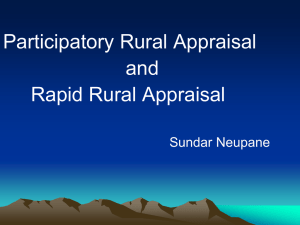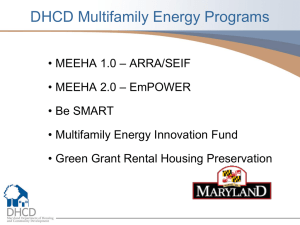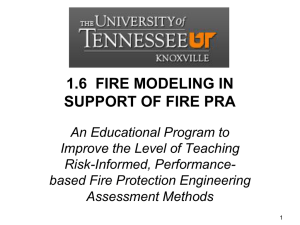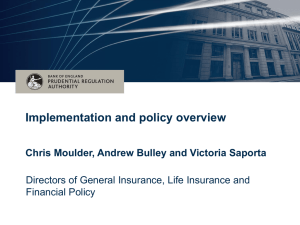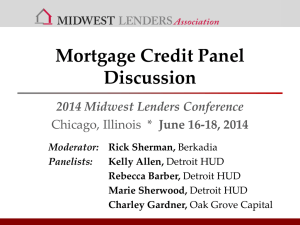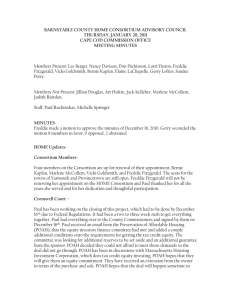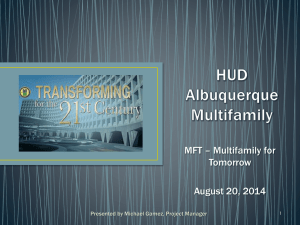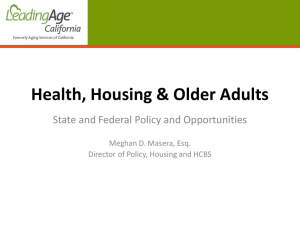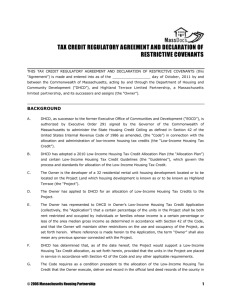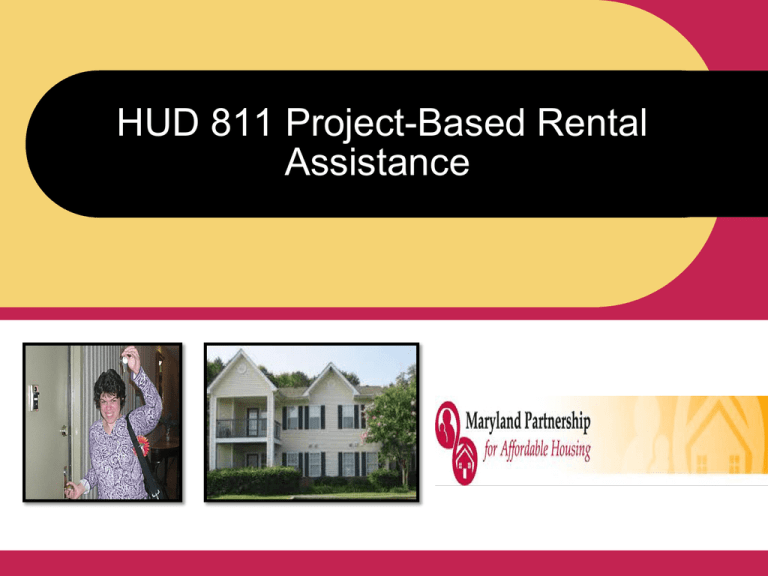
HUD 811 Project-Based Rental
Assistance
• HUD 811 Project Rental Assistance Demonstration Program
– Required Partnership Agreement
• Department of Housing & Community Development
• Dept. of Health & Mental Hygiene/Medicaid
• Dept. of Disabilities
• July 2012 - MD applied for HUD 811 PRA
– 35 states applied
• February 2013 – MD received award for $10.9 million
– 13 states received award
– 2 states with RCSC grant received award (MD & TX)
2
Why is 811 PRA Important?
New funding for ongoing rental assistance
Case managers are central to success
Decent, affordable housing for people with
disabilities and extremely low income
Integrated units – means there are no more
than 25% for people with disabilities in any
development
Safe, decent housing units near
transportation and services
3
HUD &
CMS
HUD and CMS
form partnership
Sec 811 PRA
• MDOD manages web-based
eligibility system; processes
for tenant selection & referral;
track unit availability
MPAH
DHCD
Developers &
Property
Management
Companies
DHMH
MDOD
Service Providers
& Case Managers
Housing Developers and
Property Managers partner with
Case Managers for continued
assistance
• DHCD reaches out to
developers and funds units;
pays rent subsidies; ensures
housing quality standards;
ensures HUD program
compliance
• DHMH (and associated Case
Managers) enroll applicants,
make services available,
assists with transition and
manages tenant issues
811 PRA Program
Goal
• 150 permanent supported housing units
Program Type
• Project–based rental assistance
• Located in multi-family housing developed with affordable housing development funds
• Integrated – no more than 25% of units designated for people with disabilities
Eligible Applicants:
•
•
•
•
Medicaid recipients with disabilities eligible for services
Head of household age 18 and under age 62
Access to services
Income at or below 30% Area Median Income (AMI) – includes SSI level income
Rent Contribution
• 30% of income for rent and utilities combined
5
MD 811 PRA Target
Population
Non-elderly adults with disabilities, between 18 and 62 years of age,
with income below 30% of AMI who are receiving Medicaid services
(waiver & State Plan)
Prioritized in this order:
• Recipients who are institutionalized: nursing facility, ICF/ID, state psychiatric hospital or
hospital where assistance is available under the State Medicaid
• Recipients at risk of institutionalization due to current housing situation: i.e. change
in health status, change in available supports, deplorable housing conditions
• Recipients moving to independent renting: DDA Community Pathways Waiver
participants moving from Group Homes/Alternative Living Units to independent renting
and MHA Residential Rehabilitation Program participants
• Recipients who are homeless (as defined by HEARTH Act)
• Actually homeless
• Imminent risk of homelessness
• Homeless under other Federal statutes (i.e. unaccompanied youth/families with youth)
• Fleeing domestic violence
6
811 PRA Unit Locations
Priority locations:
Baltimore metro area
•
•
•
•
•
•
•
Anne Arundel County
Baltimore City
Baltimore County
Carroll County
Harford County
Howard County
Queen Anne’s County
Goal
•
•
Washington metro area
• Calvert County
• Charles County
• Frederick County
• Montgomery County
• Prince George’s County
7
•
50% Split between
Priority Locations
where demand is
strong
70% One-Bedroom
Units
30% Two-Bedroom
Operational Overview
Funding Structure:
•
•
•
Sec 811 Program funds cover the difference between rent household can afford and Fair
Market Rent for up to 5 years;
DHCD will award PRA Demo funds in conjunction with its existing financing programs
including LIHTC and State Rental Housing Funds; and
$1,000,000 in DHMH funds held in trust by DHCD to fund the housing subsidy to
participants for up to 6 months if Sec 811 PRA is not renewed and funding is no longer
available from HUD
Administration:
•
•
•
DHCD will award PRA Demo Funds using both a NOFA process and through its competitive
funding rounds for LIHTCs and RHFs;
DHCD will operate the rental subsidy for participating tenants;
DHMH and MDOD will operate the system for registering units, referring eligible program
applicants, and providing ongoing voluntary long-term community supports.
Voluntary Support Services
Case management
through Medicaid
services
5 Medicaid
Waivers
Living At
Home – age
18 to 64
9
Older Adults
Waiver – age
50 and older
Traumatic
Brain Injury
– adults with
TBI
Community
Pathways and
New Directions
– people with a
developmental
disability
Assistance
through CILS for
people with no
service funded
case
management
Roles & Expectations of
Case Managers
Outreach
Referral
10
• Provide program information
• Enter outreach activities into 811 PRA tracking
system
• Register as user with Social Serve
• Identify and overcome challenges – criminal
background and credit, housing history
• Keep information current in MPAH referral system
Transition
Planning
• Coordinate and facilitate access to services and
housing
• Obtain needed documentation (i.e. birth certificate,
benefit letter)
• Assist with applications, reasonable
accommodations
Housing
Retention
• Ongoing contact with tenant
• Work with property manager, tenant and MFP HD
to resolve issues
Enrollment
Eligibility list
• Web-based system – roll out projected
for Fall of 2013
• Case manager must enroll participant
• Transition planning must begin early
and continue to be updated
• 6 month advance notice for new units
• 2 month notice on turnover
11
Documentation
Birth certificate – official copy http://dhmh.maryland.gov/vsa/SitePages/birth.aspx
Government issued photo ID (passport or state ID)
Verification of disability by a physician
Proof of current address
Social Security card
Marriage license/divorce decree or separation
agreement
Court documentation showing custody or
guardianship
Benefit letter from SSI, SSA - www.ssa.gov
Recent bank statements
Account statements for IRAs, annuities, stocks 401(k)
accounts
Receipts/statements showing medical and pharmacy
bills paid during the last 12 months
12
Documentation
• Credit check & criminal background
performed by property manager
– Two “never” convictions
• Lifetime sex offender registration requirement
• Methamphetamine production on federally-assisted housing
property
– Other restrictions
• Currently engaging in illegal drug activity, fugitive felons, parole
violators, evicted from federally-assisted housing due to drugrelated criminal activity within last 3 years
• Reasonable cause to believe person is a danger
13
Case Manager Training
and Support
Training
•
•
•
•
•
•
Person Centered Planning for Housing
PRA Users Guide
Use of Social Serve System
811 Outreach Tracking System
Reasonable Accommodations
Tenant Training
Technical Assistance
• MPAH Advisory Group
• MDOD
• MFP
14
Next Steps
HUD Notice H2013-24 “Section 811 Project Rental Assistance (PRA) Occupancy Interim
Notice”
•
•
Published on 8/23
DHCD is reviewing and will post on Web Site
Cooperative Agreement
•
•
Expected to be signed by DHCD and HUD by the end of October, 2013
Program implementation will begin once it is signed
Unit Selection
•
•
Initial units identified in early 2014 as part of October 29, 2013 Round
Mid-2014 NOFA for existing CDA-financed units wit expectation for occupancy availability in late 2014 or
early 2015
Outreach
•
•
DHCD will share additional information and an implementation schedule when available
DHCD, DHMH and MDOD will provide demos and more detailed overview of the referral and case
management system once the Cooperative Agreement is finalized

